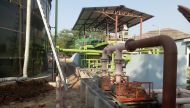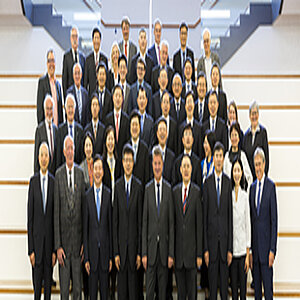Cities in a changing climate

Habitat III in Ecuador: Since 2015 the topic of ‘Sustainable Urban Development’ builds a cross-cutting theme in the International Climate Initiative (IKI).
Habitat III takes place in Quito, Ecuador until 20 October 2016. The objective of the United Nations Conference on Housing and Sustainable Urban Development is to renew the global commitment to sustainable urban development as well as to set the New Urban Agenda as a collective vision and political commitment for the future of our cities.
More than half the world’s population lives in cities. According to studies by the United Nations, this should rise to around 70% by 2050, and even 75% in Africa and Asia. This push towards urbanisation will primarily be felt in the metropolitan areas of developing countries and emerging economies. At the same time, cities are responsible for around 70% of the world’s greenhouse gas emissions generated by energy production in the industrial, transport, residential and waste sectors.
Cities located near coasts or rivers are particularly severely affected by climate change. High levels of rainfall or flooding due to rising sea levels can damage transportation routes, intensive storms can destroy buildings, and droughts bring water shortages and illnesses.
Since 2015, Sustainable Urban Development has been an overarching focus of the International Climate Initiative (IKI) of the German Federal Environment Ministry. Currently, 68 ongoing or planned projects have a direct or indirect connection to the issue of sustainable urban development.
An example of climate change adaptation is the IKI project on Cities Fit for Climate Change. Advising is provided to municipal administrations in India (Chennai), South Africa (eThekwini/Durban) and Chile (Santiago de Chile) on how urban development strategies, draft urban development plans, and land use and zoning plans can be adapted and put into practice so that climate-proof cities emerge. The intention is for addressing climate change to become an integrated and strategic element of urban development. For instance, during the urban land-use planning phase, provisions can already be made with regard to discharge options and retention areas in the event of flooding. With financing of EUR 3.5 million, the project focuses on the Leipzig Charter on Sustainable European Cities as well as the Memorandum on Urban Energies, and therefore provides support among other things to the Habitat III process to shape a new urban agenda.
An example of greenhouse gas mitigation is provided by the Sino-German Urbanisation Partnership, which was decided upon by German Federal Chancellor Merkel and Chinese Premier Li. The partnership emphasises the important role of cities in achieving climate change mitigation targets. It is being supported with nearly EUR 4.9 million from a recently initiated IKI project, and places special focus on the exchange of experiences and expertise between the two countries on current issues related to sustainable, integrated urban development policy, for instance through specialised training for German and Chinese experts from municipalities, companies, the scientific community and associations.
Waste to Energy is another IKI mitigation project, which is providing advice to the Indian city of Nashik on producing energy from wastewater and organic wastes, and reducing greenhouse gas emissions. Construction of a demonstration facility began in early 2016, and according to the feasibility study should enable annual savings of around 4,700 t CO2 equivalent. In the submitted tender, the future operator ensured daily production of 3,300 kWh of electricity. The project is being supported by IKI with around EUR 2.5 million and is actively helping the Government of India to meet its climate targets. There is also significant national and international interest in the project as a solution for biogas plants in urban conurbations and within the context of India’s new urban development programme.
The link has been copied to the clipboard
Contact
IKI Office
Zukunft – Umwelt – Gesellschaft (ZUG) gGmbH
Stresemannstraße 69-71
10963 Berlin
Further information
<link _blank internal-link>IKI Key Area on Sustainable Urban Development
Related Publications
-
 05/ 2022 | IKI Evaluation
05/ 2022 | IKI EvaluationCities fit for climate change
German with executive summary in English (PDF, 1 MB)
-
10/ 2019 | Guideline
Eyes on the Canal Reimagining Chennai's Buckingham Canal
English (external link)









![[Translate to English:] Die Petronas-Türme im Stadtbild Kuala Lumpurs; Foto: Unsplash/Ishan](/legacy/_processed_/f/8/csm_180215_ishan-seefromthesky_Header310_661e6fc5b9.jpg)




